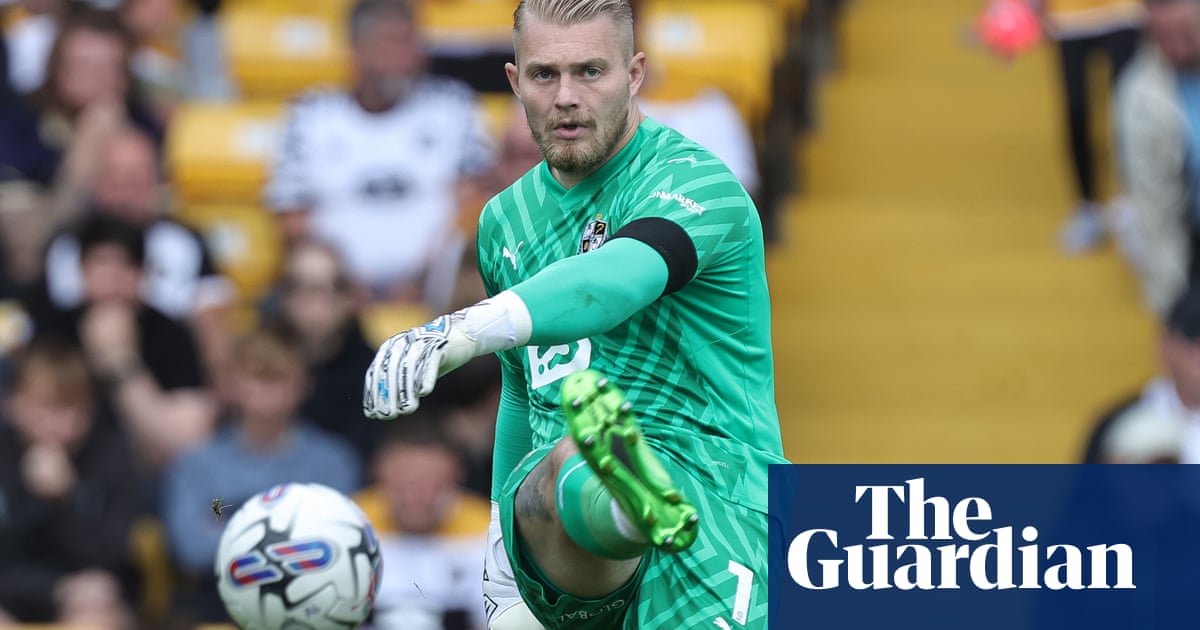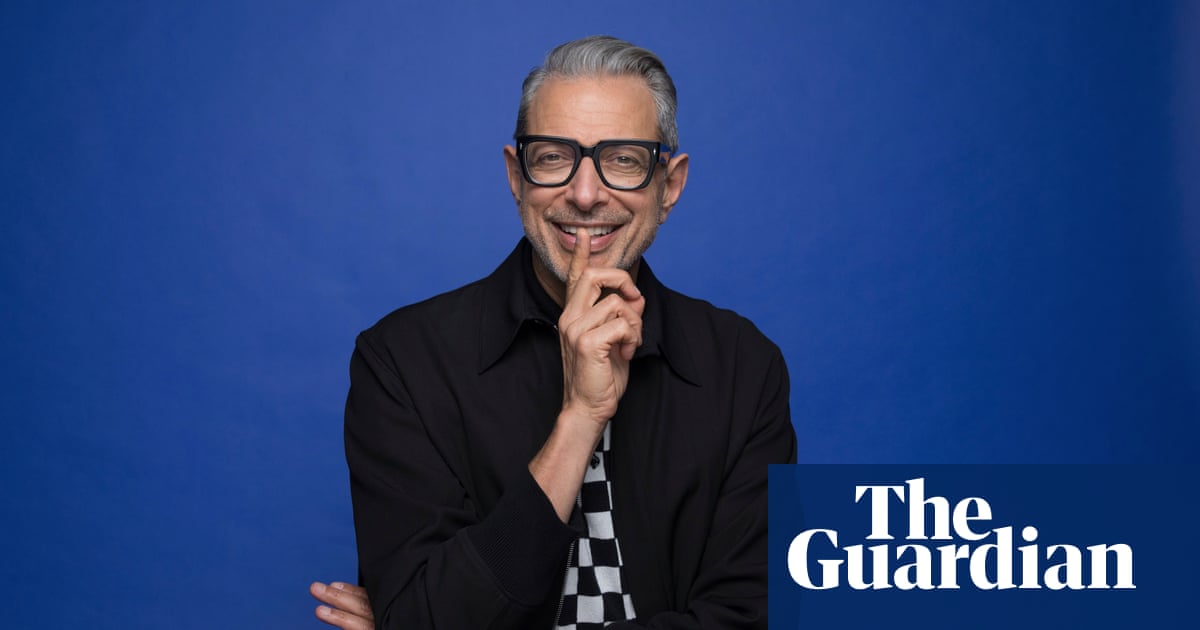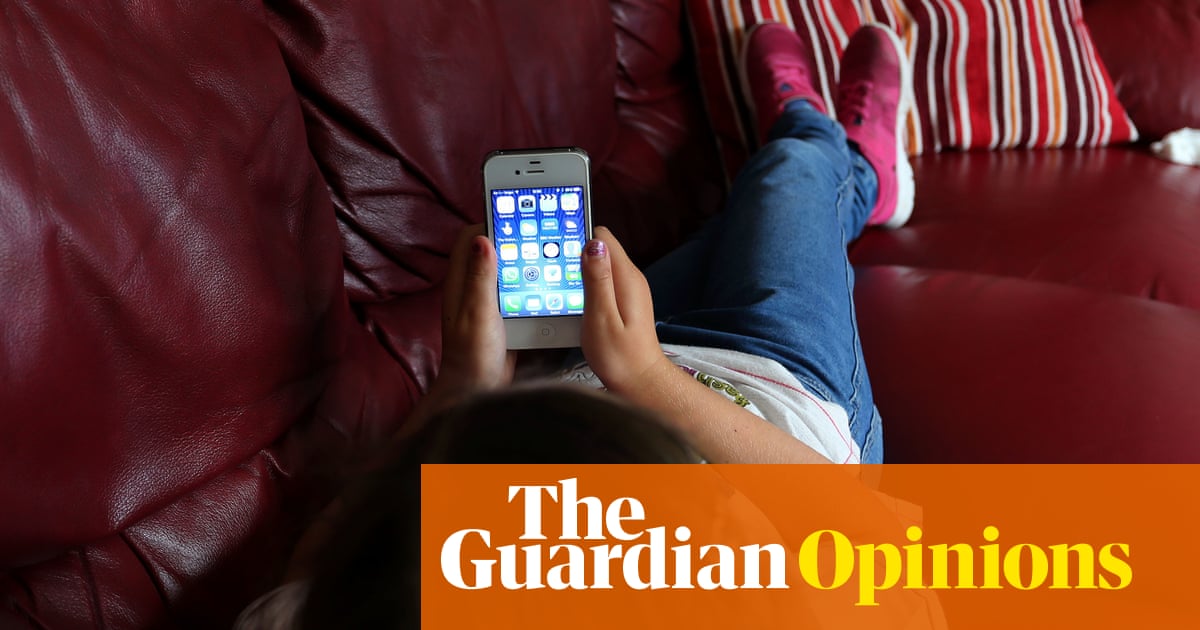
When Naga Munchetty moved into TV news, her husband, James Haggar, a TV director, told her: “You need to have a thicker skin. People either love you or hate you, but you need to not take it personally.” It is a lesson she has taken into her off-screen life, too. “It’s not that I don’t care – but it’s in perspective.” Still, she says, she always assumes “that people don’t like me. It’s a really weird thing.” Has she always felt like that? There is a brief pause. “Yeah, probably. I think I grow on people. I don’t think I make a great first impression. I’m comfortable with that. I think people see a loud person who’s opinionated and not afraid to say what she thinks.”
I like Munchetty. And I think it is because she doesn’t try too hard to be – that dreaded word – likable. She has a warm manner and, as a broadcaster, she is smart and can be bracingly and entertainingly spiky. But when I watch her, as one of the four main presenters on BBC Breakfast, I don’t detect any hint of people-pleasing. She is foremost a journalist, rather than a TV presenter, but it is more than that (there are plenty of journalists with more than a whiff of neediness). She seems very sure of herself and that is impressive and comforting.
Munchetty, 45, is still working her usual shifts on Breakfast, so her work life hasn’t changed much since the coronavirus outbreak began. “I’m so grateful to be working because I think it’s really easy to not have purpose or structure during this,” she says. “And I love the job.” She is not particularly enjoying the slower pace. Today, when we speak on the phone, she has set herself tasks around the house she shares with her husband and three cats: weeding, and cleaning the fridge.
Munchetty thinks the BBC has responded to the crisis well. “I think it’s shown just how valuable a resource the BBC is – we’ve seen that in our viewing figures. We’ve seen it on Breakfast, but all news outlets would have seen a spike because people are more engaged. This is the most important thing that’s happened to us, not for a generation, but probably for a century.” Piers Morgan, the co-host of ITV’s rival show, Good Morning Britain, has become almost unavoidable during this crisis. How much notice does she take of what that show is doing? “I think competition is a great thing. I have immense respect for Susanna Reid and Piers Morgan,” she says. “How much attention do I pay to it? If you are on Twitter, or you read the papers, there is usually a story or something generated from GMB. Noise, and an alternative, is a good thing.”
Munchetty has been at the BBC since 2008, when she joined to present Working Lunch, the business and personal finance show. Before that, she was a business reporter at Channel 4 News. She had started in newspapers as a financial journalist – it suited her logical brain, she says – first on the Evening Standard, then the Observer, before moving into TV at CNBC Europe, then Bloomberg. She joined Breakfast in 2014.
In July last year, Breakfast was covering the story of Donald Trump tweeting, the previous day, that four congresswomen (all of whom are US citizens, three of whom were born in the US) should “go back” to where they had come from. Following an interview with a Trump supporter, Munchetty and her co-host that day, Dan Walker, were discussing it – breakfast show hosts are expected to have a bit of personality – and Munchetty, though calm, was clearly seething as she set out what that loaded term meant. “Every time I have been told, as a woman of colour, to go back to where I came from, that was embedded in racism.” You know, she added, “what certain phrases mean”. Walker asked how she felt about the president using it and she said she was “furious. Absolutely furious.”
In September, the BBC’s complaint’s unit found that Munchetty had breached editorial guidelines. This provoked widespread condemnation, including a letter signed by prominent people of colour working in broadcasting and the media that was published in the Guardian. The BBC’s director general, Tony Hall, overturned the ruling, but not before Munchetty had been subjected to a barrage of attention. There is footage of her being besieged by photographers and journalists outside the TV studio. What was that like? “Horrible. Absolutely horrible.” She pauses. “I hated being the story; I wanted to just get on with my job, which I did. The instinct that kicked in for me was just to keep my head down, do my job, then get home to family life, as I had always done, and it will play itself out.”
Munchetty was assured that her job “was never under threat or in doubt”. As for the complaint and the ruling that partially upheld it, she felt it wasn’t the end of the matter. She went away for a few days. “Honestly, how I felt is: this is a process, let’s see how this pans out.”
How did she feel about the way the whole thing was handled by the BBC? “Well, it’s done. Tony Hall and I have had conversations since, very robust conversations, as I’ve had with other members of management. I was supported greatly by my family and friends and by my colleagues at the BBC.” She is silent, briefly, choosing her words. “I’m not a victim in any shape or form. I think there was a process that needed to be gone through. I think lessons have been learned and things are improving. We’re learning all the time – the BBC learns, I learn, move on.”
It showed that the BBC guidelines could do with a rethink – that it is not desirable, or even acceptable, to be impartial about some things, racism among them. She was having this conversation recently, she says, because there has been a similar process at the BBC around the climate crisis. “I think it is difficult because, as journalists, you are taught to bring balance to everything we do.” But if someone comes on TV, a politician, say, and is “allowed to spout hate, where do you draw the line in terms of offering balance? It is a responsibility to show that certain things are not acceptable. And some things are not nuanced. You have to have some faith in your journalists being smart, educated, curious, intelligent people.” And human? “Human,” she says. “We’re not robots.” On a show such as Breakfast, she says, “I’ve always known that our personalities are important. I’m not there to give an opinion, but I’m equally not there to ignore a [damaging] opinion and to absorb that into our coverage.”
At the time, the BBC journalist Sangita Myska tweeted: “There is unique self-censoring that BAMEs [Black, Asian and minority ethnic people] do across all industries and workplaces.” Has that been Munchetty’s experience? “I think anyone in a minority has felt they are not able to bring their true self to work at some point in their working lives,” she says. “And, unfortunately, I don’t think you can guarantee not having that experience again. I think the thing that came out of this was that a huge institution took a look at itself and other people could say: ‘This is my experience.’ And when big institutions – not just the BBC, but in all industries – see something like that, [they realise] the workplace as a whole needs to be more inclusive and equal in terms of opportunity – that’s a great thing. No business now can ignore that.”
A couple of weeks after the row had died down, Munchetty appeared arm in arm with Samira Ahmed, the broadcast journalist who had made an equal-pay complaint against the BBC (which she won), as Ahmed headed to the tribunal. I was cheered by this act of sisterly solidarity, not least because it may have been tempting for Munchetty to keep her head down. “She’s a friend, and she’s been very supportive to me,” says Munchetty. “Having been through the storm that I went through, trust me, having someone hold your hand, even if just to say: ‘Walk straight ahead, it’s going to be fine,’ that was what I offered to Samira at that point.”
In 2017, Munchetty had been one of more than 100 BBC women involved in an equal-pay complaint. “The outcome is that all four main presenters of BBC Breakfast are paid equally for their work,” she says when I ask what happened. “That wasn’t the case and it is now the case. There are four main presenters who present three days a week, we do the same job, we have the same level of responsibility, the same expectation; we should be paid the same.”
As a child, Munchetty says, she was encouraged to fit in. “I think that moulded a lot of my early years – we were talking earlier about whether or not people liked me,” she says. She was “so conscious” of her parents, who had come to Britain in the early 70s, “wanting me to not rock the boat”. There is a pause, and I imagine Munchetty giving a wry smile. “Surprisingly enough now,” she adds.
But who could blame them? Her mother had come from India, her father from Mauritius; both were nurses in the NHS. It is only recently that her father gave up his job in a care home – because of his vulnerablity to Covid-19. What Munchetty particularly remembers is her mother’s efforts to play down any cultural differences. “We’d come home [from school] and we’d have tea – egg and chips, something like that – and then at 9pm we’d have an Indian dinner. Mum would come back from work and go straight into the kitchen, and she’d be obsessed about keeping the back door open. She would make us change out of our uniforms – she did not want us to be those Asian kids who smelled of curry. We fitted in as much as possible.”
She remembers her mother, showing around potential buyers of their house in Peckham, south London, introducing herself as Michelle. “I was eight or nine, and I said: ‘Your name’s not Michelle, it’s Muthu.’ And it’s because they were given English names by people who couldn’t pronounce or wouldn’t try to learn how to pronounce their names. So my dad became David and my mum became Michelle at work. That upset me.” But Munchetty understands it – she went by Nadia for a while. “There was a point where I was going to change my name. I’m glad I haven’t. I feel kind of sad that I spent so much time agonising over it.”
Was she aware of her parents’ experiences of racism? “When I was younger, they would protect me from it. I was aware that someone would say ‘Paki’ in an argument about driving.” She remembers the first time the word was directed at her, when she was about seven, at primary school. “It was by one of my friends, a white kid. We’d been friends for ages, then one day he just said: ‘I’m not talking to you any more because you’re a Paki.’ I didn’t know what it meant. I remember going home and being really upset. I was ashamed to tell my parents because I felt humiliated at being different.” When she did eventually tell them, her dad gently reminded her she had nothing to be ashamed of, although it must have broken his heart.
Another memory was sitting in the back of a car with a friend, also of Mauritian heritage, as they waited for their dads, who were on an errand. Her friend told her she was scared of white people “‘because we’re in their country’. And I was really shocked that she felt that.” Did it make her question whether she belonged? “I don’t now. When I started out in newspapers, in newsrooms, and I was a minority, you’re aware that you are ‘the other’.” What the Trump episode brought up, she says, was that “the focus was on me speaking up about being the other”, rather than just being part of a hopefully majority opinion that the president’s comments were appalling.
Munchetty was academic and her parents “wanted me to be a doctor or a lawyer in typical traditional Asian fashion”, she laughs. But journalism was a better fit because “I’ve always been curious – why, why, why?” She says she doesn’t have a career plan, but would love to do more radio. Then she adds: “I will write a book one day.” A novel? No, she says. Then she stops herself – I can almost hear her brain swerving, as if no obstacle is a problem. “Mind you, I say I’m not a novel-writer, but there are loads of stories I’d love to tell. I should put my mind to something like that.”
This seems like typical Munchetty. She decided to become a golfer about 11 years ago and now wins trophies. She likes a challenge, I think, and if self-doubt is something she ever feels, she bashes it down before it can do any damage. She seems very confident – is she? “Do I?” she says, sounding pleased. “I’m not scared of much. I think I have that ‘what’s the worst that can happen?’-type thing. I think being scared is really unhealthy, and so I refuse.” She says it so breezily that she makes it sound like the easiest thing in the world.












